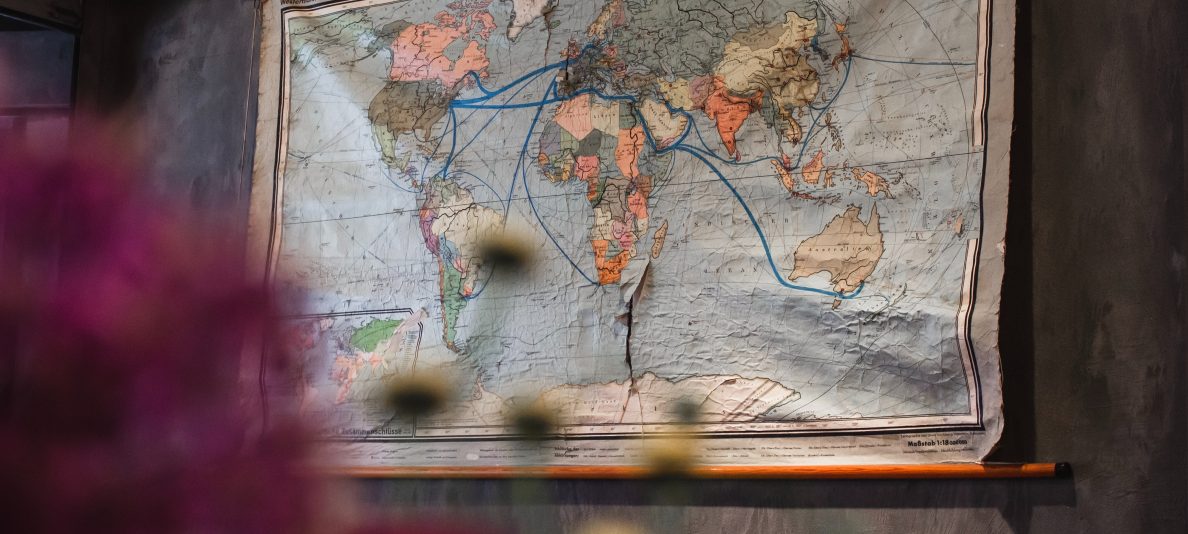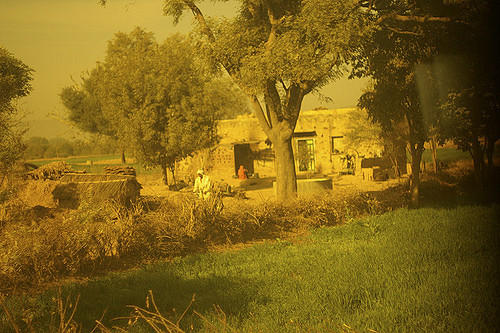Have you seen Lion? I actually hadn’t heard about the film until I saw the DVD on the “new” rack at the library. I should have heard about it, though. It didn’t win any Oscars, but it did get nominated this year in six categories, including best picture (obviously, I didn’t watch the Academy Awards).
What a powerful movie. It’s worth watching for anyone, but it is particularly relevant for those who have adopted or are contemplating adopting—especially cross-culturally—for parents with special-needs children, or for adopted children themselves.
Lion is based on the true story of Saroo, a five-year-old boy in India who is separated from his family after boarding an empty train, which takes him hundreds of miles from his home. He spends some time on the streets, is taken in by an orphanage, and ends up adopted by a couple in Australia. After growing up as their son, he begins to recall scenes from his previous life and longs to reconnect with his birth family. But “finding his way back home” is a monumental task.
The film is heartbreaking and uplifting, and not in a simple arc that leads directly from the the first to the second.
In Lion, adult Saroo is played by Dev Patel, who was nominated for an Oscar for best supporting actor. He is an impressive actor, but Sunny Pawar, who plays young Saroo. . . . he really tugs at your heart. You can get a glimpse of him in the trailer below. Listen to him call for his brother Guddu. Oh boy.
If you plan to watch Lion, you might want to hold off on the second and third videos. They tell most of Saroo’s story, so they’re full of spoilers. One is a Google Earth ad highlighting how Saroo used their product in his search. The second is from 60 Minutes.
If you watch the film, you’ll see that John and Sue Brierley adopted another boy from India, as well. His name is Mantosh. He was severely abused before joining the Brierleys, and he is a troubled soul. His real-life story, so far, lacks the bright edges of Saroo’s, and is darker inside. Ms. Brierley tells Mia Freedman, at No Filter, that Mantosh was “very upset” about how he is portrayed in the film, but she believes it necessary to show his situation realistically, not to gloss over the effects of his mistreatment—effects on him and their family. “It was important for people to see what can happen,” she says, “to face up to the terrible things that are going on, and still to this day, of course.” She adds,
The film for me, takes a lot of people deep, deep to—you know—to a place they don’t go to a lot or choose not to go to—don’t want to go to, don’t want to know about, think badly of.
. . . .
You know some of the stories I’ve had told . . . they’ve just astounded me, you know, the family stories, the things that people have felt they could say after seeing the film, admitting to troubles in their family, in their childhood. So I think it’s a worthwhile thing for people to see.
If you’d like to give towards helping the 11-million children living on the streets in India, watch the video below for information on the #LionHeart campaign.
(“Sue Brierley on what really happened to Mantosh,” interview with Mia Freedman, No Filter, April 26, 2017)
[photo: “Indian Countryside,” by Jaymis Loveday, used under a Creative Commons license]


Lion had a lot going for it but I found some of the execution kept it from being a great movie. I’m so glad though that you mention Saroo’s brother. I wish they’d explored that subplot more because as you say it’s a difficult but important one. (I wrote a far more superficial post than yours about the film back when it was in cinemas. By superficial I mean I focused on Dev Patel’s hair and accent).
LikeLike
Thanks for your comment. There are so many complex stories in Lion: Saroo’s, Mantosh’s, the Brierley’s, and Saroo’s family in India. I was glad to find the interview about Mantosh. His story may be the most complicated of them all—and the most difficult to tell.
LikeLiked by 1 person
Thanks, Craig for pointing me towards another good film to watch. Though, I’ll probably read the book before I get the chance to see the movie. I’m starting to do a little research into TCKs that were adopted, so if you come across anything please let me know. Thanks!
LikeLike
I’ll certainly do that. And I look forward to seeing what you put together. That’s another complex topic.
LikeLike